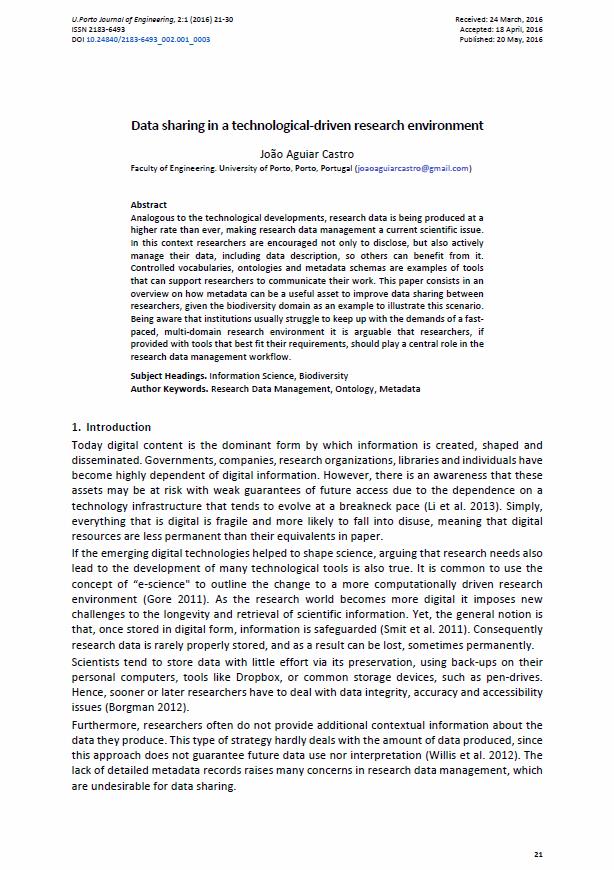Data Sharing in a Technological-driven Research Environment
Main Article Content
Abstract
Analogous to the technological developments, research data is being produced at a higher rate than ever, making research data management a current scientific issue. In this context researchers are encouraged not only to disclose, but also actively manage their data, including data description, so others can benefit from it. Controlled vocabularies, ontologies and metadata schemas are examples of tools that can support researchers to communicate their work. This paper consists in an overview on how metadata can be a useful asset to improve data sharing between researchers, given the biodiversity domain as an example to illustrate this scenario. Being aware that institutions usually struggle to keep up with the demands of a fast-paced, multi-domain research environment it is arguable that researchers, if provided with tools that best fit their requirements, should play a central role in the research data management workflow.
Downloads
Article Details

This work is licensed under a Creative Commons Attribution 4.0 International License.
Authors who publish with this journal agree to the following terms:
- Authors retain copyright and grant the journal right of first publication with the work simultaneously licensed under a Creative Commons Attribution License that allows others to share the work with an acknowledgement of the work's authorship and initial publication in this journal.
- Authors grant the journal the rights to provide the article in all forms and media so the article can be used on the latest technology even after publication and ensure its long-term preservation.
- Authors are able to enter into separate, additional contractual arrangements for the non-exclusive distribution of the journal's published version of the work (e.g., post it to an institutional repository or publish it in a book), with an acknowledgement of its initial publication in this journal.
- Authors are permitted and encouraged to post their work online (e.g., in institutional repositories or on their website) prior to and during the submission process, as it can lead to productive exchanges, as well as earlier and greater citation of published work (See The Effect of Open Access).

